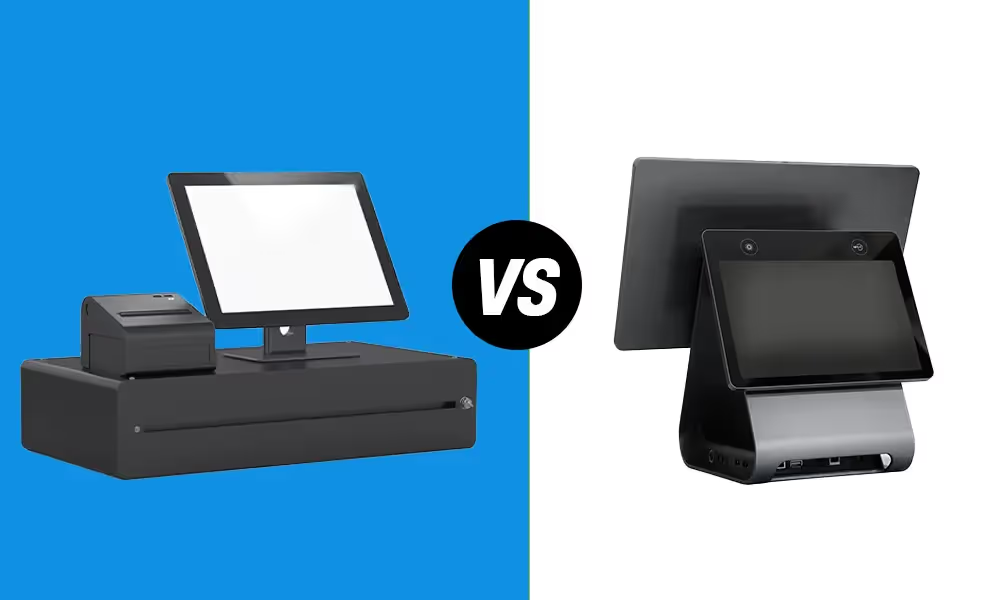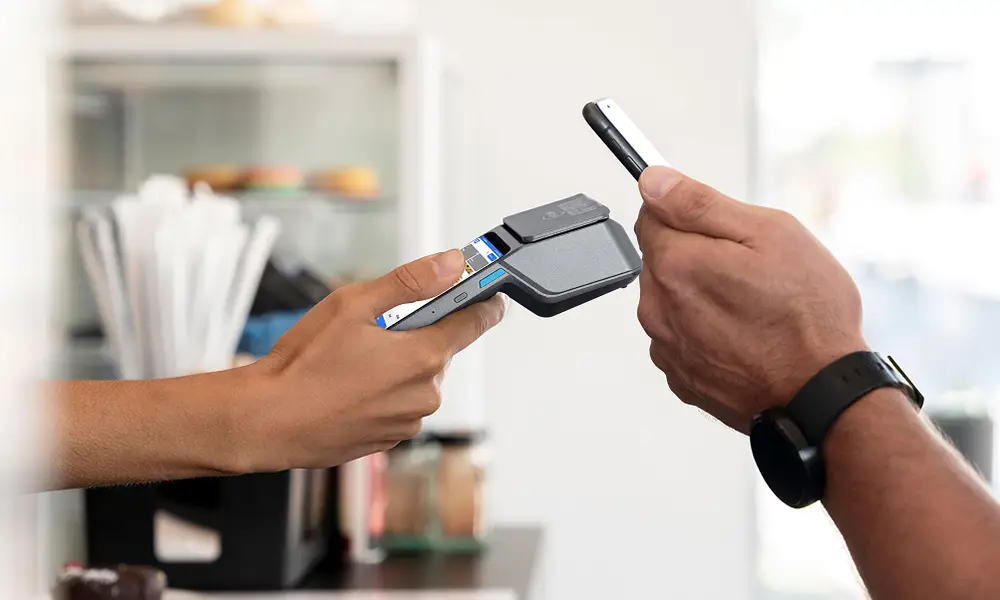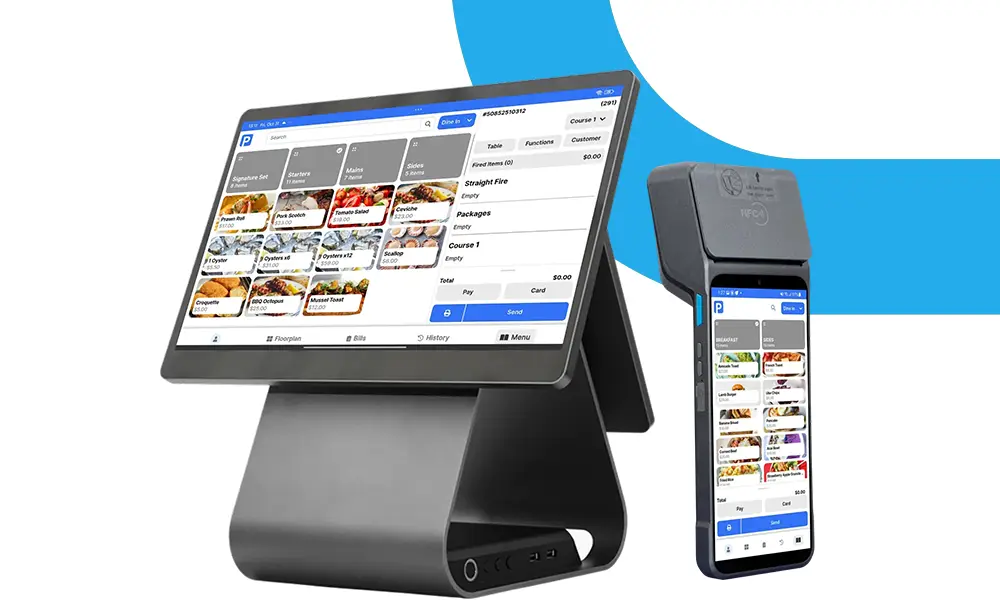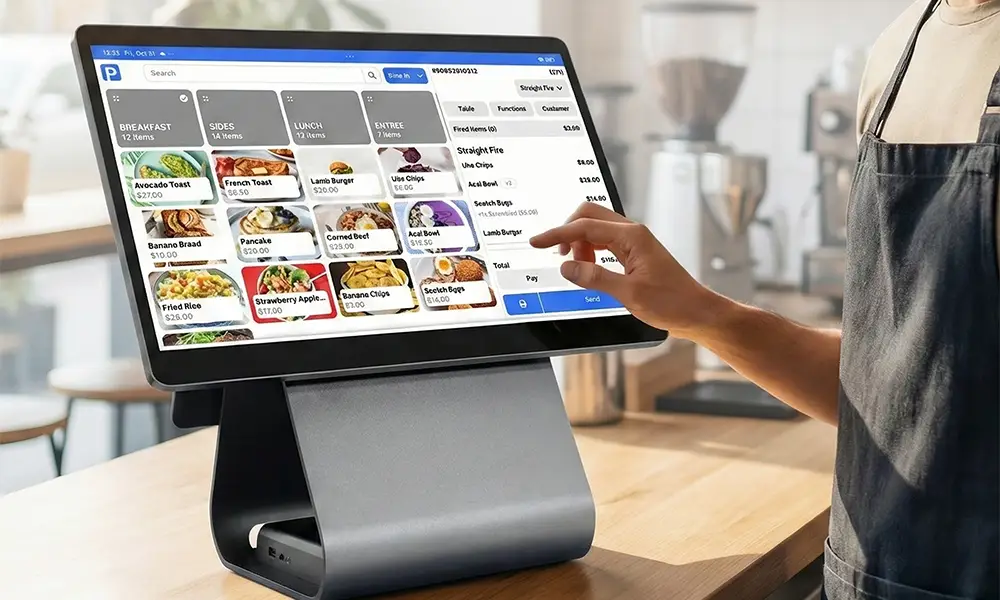Choosing between cash registers vs. POS systems can be challenging for any business owner. Both have their strengths and can serve different business needs. Whether you run a small retail store or a growing café, the choice can significantly impact your operations and customer experience.
Understanding the differences between these two payment solutions can help you decide which one fits your business model. To get expert advice on setting up the right system, contact Payflo.
Why Does Your Choice Matter?
The choice between cash registers vs. POS systems can influence how efficiently your business runs. While cash registers are reliable for basic cash handling, POS systems offer more advanced features that go beyond just processing transactions. Your business needs and budget will determine which option suits you best.
Knowing how each system works and its advantages can save you from investing in technology that doesn't align with your business goals.
What Are Cash Registers?
Cash registers are mechanical or electronic devices that record sales transactions. They are widely used in retail and small businesses due to their simplicity and affordability. The basic function of a cash register is to calculate totals, store cash, and print receipts.
Key Features of Cash Registers
- Simple Transaction Recording: Allows for quick cash sales without complex software.
- Receipt Printing: Prints basic receipts for customer records.
- Cash Drawer: Safely stores cash and coins.
- Basic Reporting: Provides simple sales totals at the end of the day.
- No Internet Required: Operates offline, which makes it reliable even without connectivity.
Typical Uses of Cash Registers
- Small Retail Stores: Ideal for businesses with straightforward transactions.
- Food Stalls: Suitable for places with a limited menu and fixed pricing.
- Pop-Up Shops: Useful for temporary setups needing minimal infrastructure.
- Service-Based Businesses: Often used in barber shops or salons.
What Are POS Systems?
POS systems are digital platforms that go beyond basic transaction processing. They offer a wide range of features, including inventory management, sales tracking, and customer data collection. Modern POS systems integrate with other business software, allowing you to manage various aspects from one interface.
Key Features of POS Systems
- Multi-Payment Options: Accepts cash, cards, and mobile payments.
- Inventory Tracking: Updates stock levels automatically when a sale occurs.
- Customer Data Management: Stores purchase history and loyalty points.
- Sales Reporting: Generates detailed insights and analytics.
- Employee Management: Tracks shifts and sales per staff member.
Typical Uses of POS Systems
- Cafés and Restaurants: Manages orders, payments, and customer preferences.
- Retail Chains: Integrates multiple stores for unified data management.
- E-Commerce Integration: Syncs online and in-store sales data.
- Hospitality Services: Offers features like table management and bill splitting.
Cash Registers vs. POS Systems: Key Differences
Understanding the differences between cash registers vs. POS systems can help you choose the most practical solution for your business.
1. Functionality
- Cash Registers: Limited to processing cash transactions and printing receipts.
- POS Systems: Handle multiple payment types and offer robust reporting features.
2. Cost
- Cash Registers: Typically cheaper upfront but offer limited capabilities.
- POS Systems: Higher initial cost but provide long-term value through automation.
3. Usability
- Cash Registers: Easy to learn and operate but lack advanced functions.
- POS Systems: More complex but feature-rich, requiring minimal training.
4. Integration
- Cash Registers: Standalone units with no connectivity to other business systems.
- POS Systems: Integrate with accounting, inventory, and customer management software.
Advantages of Using Cash Registers
Cash registers are suitable for businesses that need a simple, reliable way to process payments.
Cost-Effective for Small Businesses
For businesses with low transaction volumes, a cash register can meet basic needs without significant investment. Its simplicity makes it cost-effective for small shops or stalls.
Offline Operation
Since cash registers do not require an internet connection, they continue to work during outages. This makes them dependable in areas with unstable connectivity.
Low Maintenance
With fewer moving parts and no software updates, cash registers rarely require maintenance. This makes them durable and long-lasting.
Advantages of Using POS Systems
POS systems provide more flexibility and control over business operations, making them ideal for growing businesses.
Real-Time Inventory Management
A POS system automatically tracks stock levels, helping you stay updated on what’s selling. This reduces the risk of overstocking or running out of popular items.
Comprehensive Sales Reporting
POS systems generate reports that break down sales by item, employee, or time period. These insights help you make informed decisions about pricing and promotions.
Improved Customer Experience
Offering multiple payment options, including contactless payments, makes transactions faster and more convenient for customers. POS systems also facilitate loyalty programs and personalised marketing.
Cash Registers vs. POS Systems: Which One Suits Your Business?
Deciding between cash registers vs. POS systems depends on your business type and scale.
When to Choose Cash Registers
- Low Transaction Volume: Ideal for businesses with a limited number of sales per day.
- Budget Constraints: If upfront costs are a concern, cash registers are more affordable.
- Minimal Data Needs: Suitable when detailed reporting and customer tracking are unnecessary.
When to Choose POS Systems
- High Sales Volume: Handles multiple transactions simultaneously.
- Inventory Management Needs: Tracks stock levels and reduces manual errors.
- Customer Engagement: Supports loyalty programs and personalised offers.
- Data-Driven Decisions: Uses sales reports for business planning.
Challenges of Using Cash Registers
Despite their simplicity, cash registers have some limitations.
Manual Data Entry
Entering prices manually can lead to errors, especially during busy periods. This makes it difficult to track individual items sold.
Limited Payment Options
Cash registers primarily handle cash and card payments. They lack the ability to process digital wallets or mobile payments.
No Data Storage
Cash registers do not store sales data, making it hard to generate reports or track customer habits.
Challenges of Using POS Systems
While advanced, POS systems are not without their challenges.
Higher Initial Cost
Investing in a POS system requires a larger budget. You need to account for hardware, software subscriptions, and potential installation fees.
Software Maintenance
Regular updates are essential to keep the system running smoothly. Failure to update can lead to compatibility issues or security vulnerabilities.
Learning Curve
Training staff to use a POS system can take time, especially if they are accustomed to simpler cash registers.
Integrating POS Systems with Other Tools
One of the key advantages of POS systems is their ability to integrate with other business tools.
Accounting Software
Automatically syncs sales data with your accounting system, reducing manual entry.
Customer Relationship Management (CRM)
Keeps track of purchase history and customer preferences, supporting targeted marketing.
Inventory Software
Tracks product levels in real-time, allowing for automatic reordering when stocks run low.
To explore integrated POS solutions, visit Payflo's Services.
Final Thoughts
Choosing between cash registers vs. POS systems requires careful consideration of your business needs and long-term goals. While cash registers offer simplicity and affordability, POS systems provide more features and data management capabilities.
If your business is small and operates with basic transactions, a cash register might be enough. However, if you need detailed reporting, multiple payment options, and customer engagement features, a POS system is the better choice.
To find the perfect solution tailored to your business, contact Payflo for expert advice.
FAQs
1. Are cash registers outdated compared to POS systems?
Yes, many businesses are switching to POS systems for their advanced features and digital integration.
2. Can I upgrade my cash register to a POS system?
Yes, many businesses transition from cash registers to POS systems to streamline operations and gain more features.
3. Are POS systems harder to use than cash registers?
Not necessarily. Many modern POS systems are user-friendly and come with intuitive interfaces designed for ease of use.
4. Is it expensive to switch from a cash register to a POS system?
Costs vary, but investing in a POS system can save money long-term through improved efficiency and reporting.
5. Do cash registers still have any advantages?
Yes, they are cost-effective for basic transactions and small businesses with minimal requirements.


%201.svg)
%201.svg)





.png)
.png)
